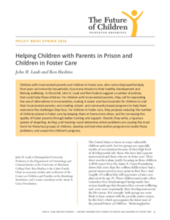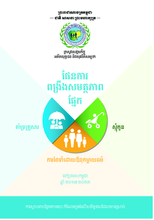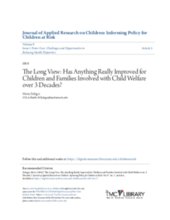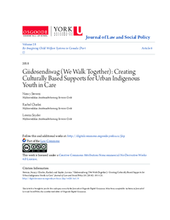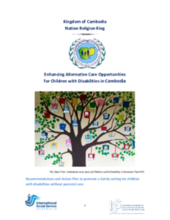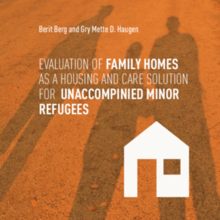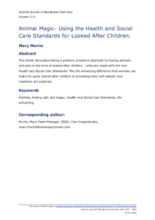Displaying 1411 - 1420 of 2223
Because foster parents play a critical role in supporting children in foster care, who often have experienced trauma, the Casey Foundation developed ARC Reflections, a nine-session program that child welfare agencies can use to train foster parents to better care for children who have had traumatic experiences.
In this brief, John H. Laub and Ron Haskins suggest a number of policies that could help children with incarcerated parents and children in foster care.
This Plan presents key findings and 23 recommendations, sub-divided into short-term, medium-term and long-term actions, for an effective and efficient implementation of foster care, adoption and family support in Cambodia.
This paper reflects on: what’s better or not after 30 years; whether legislation and financing are aligned with child welfare’s goals of safety, permanency and well-being; and what remains to be done to improve the outcomes of children and youth in foster care or otherwise involved with child welfare.
In Ontario, as elsewhere in the country, there are limited Indigenous-specific resources to assist in strengthening Indigenous youth, families, and communities. This article explores how that might be changed by using the Anishnaabeg Youth in Transition Program at Niijkiwendidaa Anishnaabekwewag Services Circle, based in Peterborough, Ontario, as one model of service delivery.
This article from the Scottish Journal of Residential Child Care describes the Family Based Care (FBC) program by SOS Children's Villages of India.
This report presents a needs assessment which provides a summary of the situation of children with disabilities who are living in residential care institutions and in communities in Cambodia and proposes seven key recommendations and relevant concrete actions for the short, medium and long term to improve the quality of care of children with disabilities living in institutions and to ensure that they have better access to basic services and are living in a protective environment.
This report presents an evaluation of the family home model as part of the 'Our New Children' project in Norway, a collaborative project between SOS Children’s Villages, Asker Municipality and the Housing bank that seeks to "assess the establishment of family homes as the housing and care solution for single minor refugees."
This article celebrates the positive difference that being around and caring for animals can make for looked after children. It explores the benefits and makes a case for a proactive approach.
This book makes a distinctive contribution to reflections on what child-centred practice means in the complex area of child welfare.

